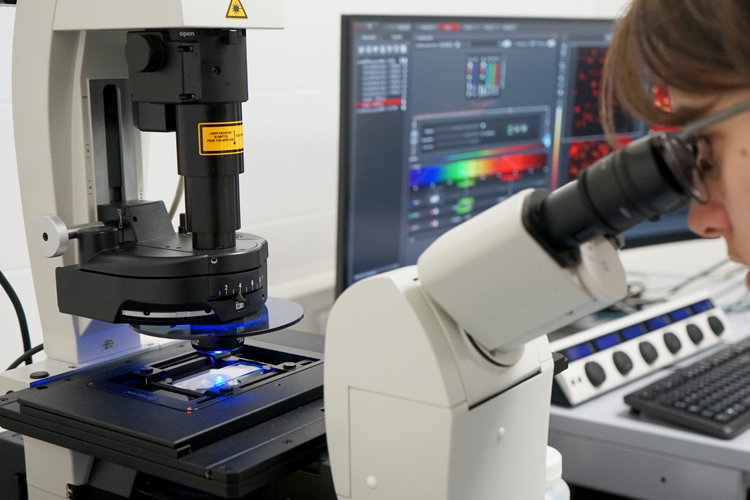77% of the students in the three IQS doctoral programs have scholarships or pre-doctoral contracts, financed by public entities, companies or private entities and also by IQS itself.

IQS offers three doctoral programmes, two in the IQS School of Engineering (Doctorate in Bioengineering and Doctorate in Chemistry and Chemical Engineering) and one in the IQS School of Management (Doctorate in Business and Territorial Competitiveness, Innovation and Sustainability). The latter, with the acronym CETIS, is a joint programme with the Faculty of Economics and Business at the Universidad de Deusto and the Faculty of Economics and Business Sciences at the Universidad Pontifica Comillas (ICADE).
Over the last five academic years (2015/16-2019/20), a total of 94 students have been studying one of these doctoral programmes at IQS, of whom 49% are in the Chemistry and Chemical Engineering Programme, 30% in the Bioengineering Programme, and 21% in the CETIS Programme.
Doctoral students have represented 3.7% of the total enrolment in official IQS programmes over the last five academic years. The annual enrolment figures show a 55% increase in the number of doctoral students in recent years.
Of all doctoral students, 23% do not have a grant or predoctoral contract. In general, these are part-time students who combine the research tasks that each doctoral programme requires with other professional activities.
The remaining 77%, 72 students, hold some sort of grant or predoctoral contract and dedicate their time entirely to the activities inherent to each doctoral programme. Although at the individual level the doctoral students’ situation may change during the three years of study that these programmes generally involve, by analysing the sources of funding, we have obtained the following data:
15% hold grants as part of the Industrial Doctoral Plan of the AGAUR (Agency for Management of University and Research Grants, Government of Catalonia). This programme aims to capture the talent that Catalonia generates to make it possible for future PhDs to develop R&D&i projects in companies. The company’s research project is developed in collaboration with the university in the format of a doctoral thesis.
10% work in research and technology transfer projects that IQS has with companies. These long-term collaborations between business and university can also be structured as a doctoral thesis format due to their scientific component. As with the previous case, the company’s aim is to include the future PhD holder in the company’s innovation activity.
9% hold a FI New Research Staff grant from the AGAUR (Government of Catalonia). These predoctoral researcher in training contracts are earned through competitive public calls for grants.
6% have a grant or employment contract from the Scientific, Technical, and Innovation Research Plan of the Ministry of Science and Innovation.
3% hold a doctoral grant financed directly by one of the research groups at IQS.
1% has a predoctoral contract coming from European funds through the H2020 projects of the European Framework Programme for Research and Innovation.
Finally, we should highlight that 56% have a predoctoral contract funded by IQS through the IQS grant fund, which represents 43% of all doctoral students.
IQS is fully committed to training and research because the future of society and the planet as a whole are also in the hands of the professionals from new generations, the students who are in our classrooms today.
Dr Núria Vallmitjana
Director of IQS Tech Transfer










